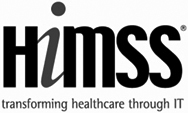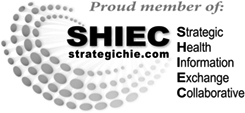Transforming Behavioral Health Care in Oregon Through Information Technology Forum
Best Practices, Challenges and Lessons Learned
The July 25, 2017, forum brought together brought together over 90 organizations and 132 participants to have dynamic, statewide dialogue about enhancing opportunities to share behavioral health information in a legally compliant manner to improve care coordination and health outcomes for some of the State’s most vulnerable populations.
Reliance is becoming a national leader in advancing behavioral health information exchange through Federal funding obtained in collaboration with the Oregon Health Authority.
The Forum covered:
- Overcoming legal and policy challenges
- Developing and implementing a common consent model
- Debuting an informed consent consumer education video
- Using HIT/HIE to support value-based care within behavioral health settings
- Connecting with other entities such as the Veteran’s Administration and the Prescription Drug Monitoring Program
Review Forum Materials:
Presentation by Susan Otter, Director of Health IT, Oregon Health Authority: Transforming Health Care Delivery in Oregon through Technology and Robust Health Information Exchange
Presentation by Gina Bianco, Consultant for Reliance eHealth Collaborative: Bridging the Information Divide: Integrating Behavioral and Physical Health Information for Patient-Centered Care
Frequently Asked Questions on Behavioral Health Information Exchange
Prescription Drug Monitoring Program Fact Sheet
Understanding EHR Connectivity with Reliance
Behavioral Health Exchange Legal Analysis Report
This analysis of federal (HIPAA and 42 CFR Part 2) and Oregon laws governing the exchange of behavioral health information was developed for use by Reliance eHealth Collaborative. This information served as the basis for the development of the Reliance common consent model, which facilitates lawful exchange of behavioral health information among authorized health care providers, and enables the maintenance of patient consents for disclosure (release of information). This report is not intended to serve as legal advice to other organizations or agencies.
Behavioral Health Use Case Matrix
This matrix of behavioral health information exchange use cases was developed by Reliance staff based on an analysis of federal and state (Oregon) law. It includes scenarios for various types of health care providers (primary care, specialist, substance use disorder treatment, mental health, etc.) to exchange patient data protected under 42 CFR Part 2. This information served as the basis for the development of the Reliance common consent model, which facilitates lawful exchange of behavioral health information among authorized health care providers, and enables the maintenance of patient consents for disclosure (release of information). This matrix is not intended to serve as legal advice to other organizations or agencies.
Support for the Behavioral Health Forum and work is provided by the Office of the National Coordinator for Health IT, Department of Health and Human Services, Grant 90IX0007/01-00.



